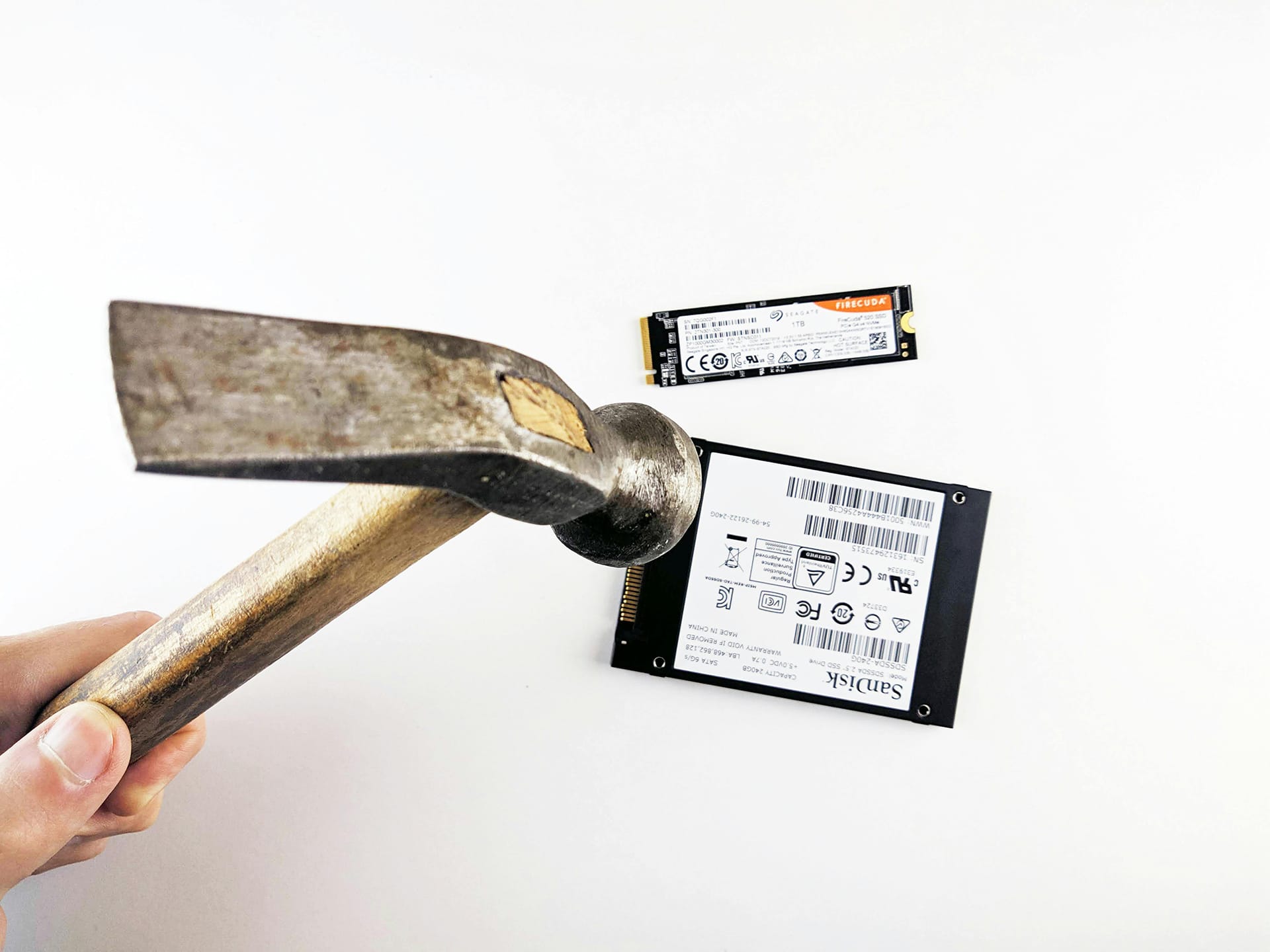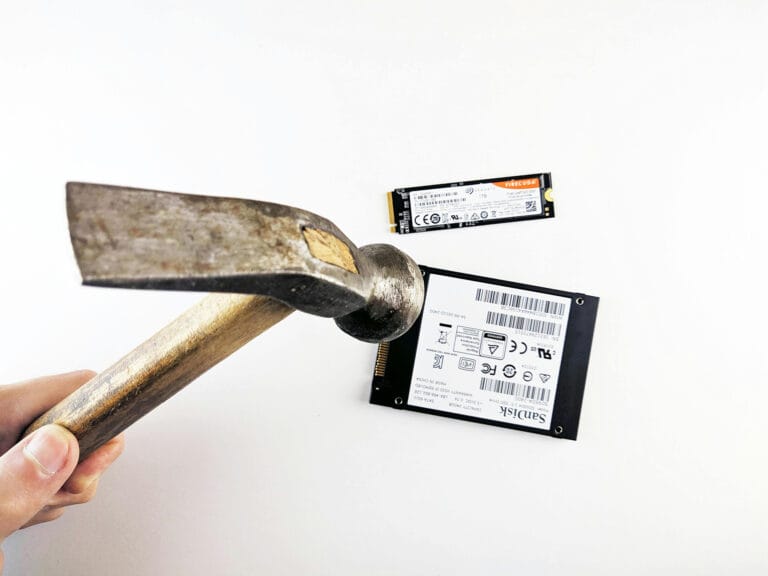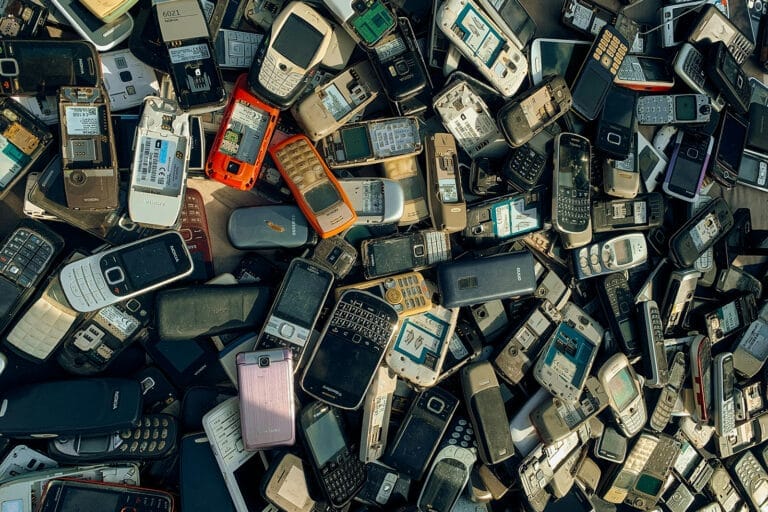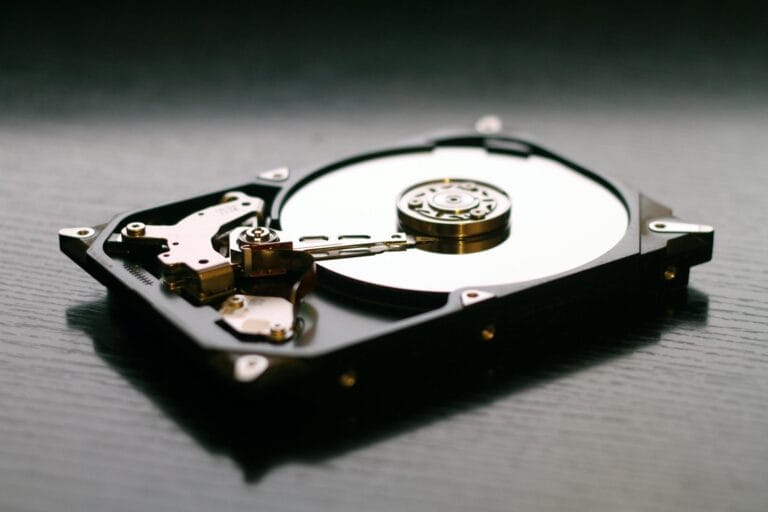What Is E-Waste and Why Proper Disposal Matters for Your Business
Businesses of all sizes rely heavily on electronic devices to store sensitive information, manage operations, and connect with customers. Unfortunately, businesses cycle through electronics faster than ever, upgrading computers, servers, phones, and other devices to stay competitive and efficient.
But what happens when these devices reach the end of their useful life? If you’re not managing your e-waste disposal properly, your business could be adversely impacting the environment. Moreover, you could be putting sensitive data and regulatory compliance at risk.
That is why proper e-waste disposal should be a critical component of not only your business’s environmental initiatives but also your data security and regulatory compliance efforts.
Understanding E-Waste: Beyond Outdated Computers
Electronic waste, e-waste for short, includes any discarded electronic device or component—everything from old laptops and hard drives to printers, routers, smartphones, and monitors. These devices often contain hazardous materials, such as lead, mercury, cadmium, and flame retardants, which can be toxic to the environment if not handled correctly.
E-waste is a significant source of recoverable materials like copper, aluminum, and gold. However, recovering these responsibly requires specialized recycling, not simply tossing devices in the trash.
According to the Global E-Waste Monitor 2020 report, global e-waste generation reached 53.6 million metric tons in 2019, with only 17.4% being properly collected and recycled. The business sector produces a significant portion of this waste, creating both a responsibility and an opportunity for corporate leadership in sustainable practices.
Why E-Waste Disposal Matters to Your Business
Again, proper e-waste disposal isn’t just a matter of environmental responsibility. It’s a critical business practice. Here’s why:
Data Security
Beyond environmental concerns, improper e-waste disposal creates significant data security risks. Many electronics retain sensitive company, employee, and client data even after deletion.
A 2017 study by the National Association for Information Destruction (NAID) found that 40% of used electronic devices sold on the secondary market contained personally identifiable information, including usernames, passwords, and even tax records.
If disposed of improperly, discarded devices can become a goldmine for cybercriminals and identity thieves.
| Data breaches | Even “deleted” data can often be recovered from discarded devices by determined individuals with the right tools. |
| Identity theft | Business records contain valuable personal information about employees, customers, and partners. |
| Intellectual property theft | Proprietary research, formulas, designs, and business strategies can be extracted from improperly disposed devices. |
| Competitive intelligence | Information about your operations, strategies, and business relationships can be valuable to competitors. |
| Regulatory non-compliance | Failure to properly destroy data before disposal can violate numerous privacy laws and regulations. |
Professional e-waste disposal services offer certified data destruction to ensure no data is recoverable, protecting your business from breaches and liability.
Regulatory Compliance
Several laws and various environmental regulations mandate properly handling electronic data and hazardous materials. Failure to comply can lead to hefty fines, legal consequences, and reputational damage. A certified e-waste provider helps ensure full compliance through secure, documented disposal processes.
Federal Regulations
| Resource Conservation and Recovery Act (RCRA) | Regulates the disposal of hazardous waste, including many electronic components |
| Health Insurance Portability and Accountability Act (HIPAA) | Requires healthcare organizations to properly destroy electronic protected health information |
| Gramm-Leach-Bliley Act (GLBA) | Mandates that financial institutions protect consumers’ personal financial information, including proper disposal |
| Sarbanes-Oxley Act | Contains requirements for the retention and protection of electronic records and communications. |
State-Level Requirements
Many states have implemented their own e-waste regulations, often more stringent than federal requirements:
- The District of Columbia and 25 states have enacted e-waste recycling laws.
- Some states impose disposal bans, i.e., prohibiting the disposal of certain electronic devices in landfills.
- Several states mandate that manufacturers establish take-back programs.
- California’s Electronic Waste Recycling Act imposes fees on certain electronic products to fund recycling programs.
International Considerations
For businesses operating globally, additional regulations may apply:
- General Data Protection Regulation (GDPR): Requires proper data destruction for EU citizens’ information.
- Basel Convention: Restricts transboundary movements of hazardous wastes, including e-waste.
Environmental Responsibility
E-waste contains numerous toxic substances that can cause severe environmental damage when improperly disposed of:
- Lead: Found in CRT monitors and circuit boards, lead can contaminate soil and groundwater, leading to serious health issues in humans and wildlife.
- Mercury: Present in switches, flat-screen displays, and batteries, mercury is highly toxic and can accumulate in the food chain.
- Cadmium: Used in rechargeable batteries and circuit boards, cadmium is a known carcinogen that can cause kidney damage.
- Brominated flame retardants: These chemicals, found in plastic casings, can bioaccumulate in the environment and have been linked to numerous health concerns.
- Beryllium: Present in connectors and motherboards, beryllium can cause chronic lung disease when particles are inhaled.
When electronic devices end up in landfills, these toxins can leach into soil and water systems. The result: Long-term environmental hazards that affect communities and ecosystems for generations.
By choosing environmentally responsible e-waste disposal, businesses reduce their ecological footprint and contribute to a sustainable future, something increasingly important to stakeholders and consumers alike.
Corporate Social Responsibility (CSR)
Demonstrating a commitment to eco-friendly practices strengthens your brand and aligns your company with global sustainability goals. Customers and partners are more likely to trust and support businesses that take their environmental responsibilities seriously.
A comprehensive e-waste disposal program offers tangible business benefits, including risk mitigation, environmental stewardship, and corporate social responsibility:
| Risk Mitigation | Environmental Stewardship | Corporate Social Responsibility |
| Reduced liability: Proper disposal eliminates the risk of data breaches from discarded equipment. Regulatory compliance: A documented e-waste disposal process helps meet various industry requirements. Brand protection: Avoiding data breaches from improper disposal protects your company’s reputation. | Resource recovery: E-waste contains valuable materials, such as gold, silver, copper, and rare earth elements, which can be recovered through proper recycling. Carbon footprint reduction: Recycling electronics requires significantly less energy than manufacturing from raw materials. Toxic waste prevention: Keeping hazardous materials out of landfills protects local ecosystems and communities. | Stakeholder expectations: Customers, investors, and employees increasingly expect businesses to demonstrate environmental responsibility. Competitive advantage: Responsible e-waste management can differentiate your business in a crowded marketplace. ESG reporting: Proper e-waste disposal contributes positively to your environmental, social, and governance metrics. |
Taking the Next Step
The digital transformation of business brings tremendous opportunities, but it also creates significant responsibilities regarding the hardware that enables it. As your business evaluates its e-waste disposal needs, consider the full spectrum of risks and responsibilities. The modest investment in professional e-waste services yields substantial returns in risk reduction, regulatory compliance, and environmental responsibility.
Contact Marshall Shredding today for a consultation on creating a secure, compliant, and environmentally responsible e-waste disposal program for your business.
















